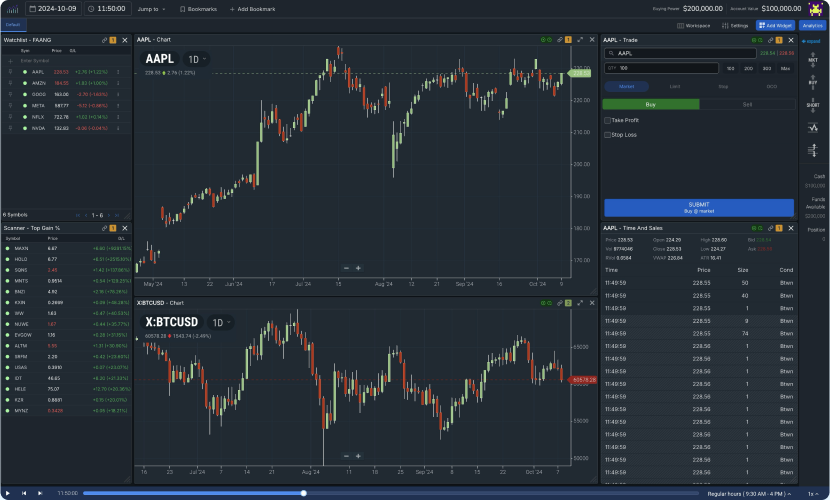TechBullion
2w
60

Image Credit: TechBullion
What Are Trading Simulators?
- Trading simulators are virtual platforms that mimic real-world markets, allowing users to practice trading in a risk-free environment.
- Users can simulate buying and selling stocks, currencies, and cryptocurrencies without using real money on these platforms.
- These simulators provide virtual cash for making trades and help users test their strategies based on real or historical market data.
- Both beginners and experienced traders utilize trading simulators to learn, experiment, and practice new strategies safely.
- Simulated trading environments offer tools like performance trackers, tutorials, and market analysis to enhance user learning and skill development.
- They allow users to practice placing orders, analyzing charts, and managing a portfolio, similar to real brokerage accounts.
- Trading simulators are available for various markets including stocks, forex, options, and cryptocurrencies, catering to different trading interests.
- While simulators are great for learning and testing strategies, they cannot fully replicate the emotional aspects and real-world factors of live trading.
- They are valuable for building confidence, trying new ideas, and adapting to market changes, but success in simulation does not guarantee success in live markets.
- In conclusion, trading simulators offer a safe space to learn, practice, and experiment in trading, aiding users in preparing for actual trading scenarios.
Read Full Article
3 Likes
For uninterrupted reading, download the app